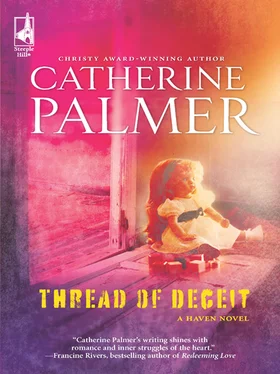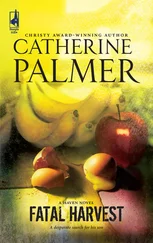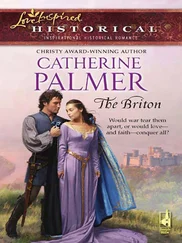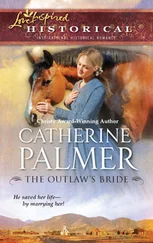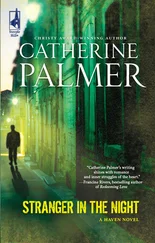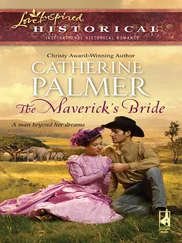Haunted, Sam Hawke had described the invisible children. A small girl with haunted eyes was not worth Ana’s time, was she? Neither was Terell Roberts, who even now—across the basketball court—sat with one child draped over his back, a second in his lap and a third at his feet. He was rubbing the back of the little boy at his feet, and he and the girl on his knee kept tickling each other. Again she felt a vague unease, and she had to look away. Maybe it was innocent. Maybe this little girl in the shadows had nothing to tell.
Ana lifted her hand and touched the cross at her throat. As a child, she had gone to church with her parents and learned about God. But not until later, after her sister’s death, had she given herself to Him wholly, completely, falling into His arms like a drowning woman pulled from the sea at the last moment. The last gasp. The final breath. In that instant, she would have died and been glad. Welcomed the end.
But God had saved her. Truth had dragged her up from the sandy bottom, the clutching seaweed, the deadly undertow. She had seen His hand reaching out to her, and she had taken it. Even now, years later, she recalled that moment when she had chosen to live. And all the way out of the depths, onto the shore and along the pathways of her life, He had stayed at her side.
Now, each morning when she opened her eyes, she searched for God, prayed to Him, and gave herself to Him again. It was the only way she could survive. Her morning run to the river, the articles she wrote, the people she encountered, each activity throughout the day until she dropped into bed at night belonged to Him.
Her faith didn’t sound exactly like Sam Hawke’s. He had spoken of committing his life to Christ—almost as though Jesus were a military commander who required absolute obedience. Ana saw God as the Father. She had met Him one desperate day, and to Him she belonged with her whole heart.
As she studied the skinny girl in her faded green skirt, Ana prayed. Why this child, Father? Why did You draw my eyes to this little one in the corner? Has that huge man across the room harmed her in any way? Can I do anything about it? What do You want of me?
“Could you lead me to the ladies’ room?” Ana whispered the Spanish words. “This is only my second time to visit Haven, and I’m afraid I might get lost.”
“I can’t take you.” The girl hung her head. “Ask someone else.”
Ana relaxed against the wall and lifted her eyes to the water-stained white ceiling. She ought to leave the child alone. Talk to some of the others in the building, concentrate on her lead paint story. Upstairs, she could interview the construction crew. They would know how many rooms had been contaminated with the deadly old paint.
She might even approach Terell again—ostensibly to discuss his background in professional basketball. That ought to produce some interesting quotes. She slipped her shoes back on her feet and started to rise.
“Do you know La Ceiba?”
The birdlike voice stopped her.
“La Ceiba?” Ana frowned, trying to think where she might have heard the name. Wasn’t that some kind of tree? She recalled her mother pointing it out in Brownsville—a tree with palmlike leaves and large fruits. Several Ceiba trees grew in their neighborhood, and when the fruit burst open, the silky fiber pulled away from the seed and drifted on the breeze like clouds you could actually touch. Ana had stuffed the fiber into pillows for her dolls’ beds.
“La Ceiba is a tree,” she said.
The girl looked down, her face sad. “Yes, it’s a tree.”
“Why do you ask me this?”
“Because…because I understand your words when you talk to me.”
Ana wondered what her knowledge of Spanish had to do with the silk-cotton tree. “My mother is Mexican,” she explained. “But I grew up in Texas. It’s a long way from here.”
The girl nodded, twisting her fingers together. “Yes, a long way.”
“Where did you come from?”
The girl shook her head and wedged her shoulders into the corner, retreating into the darkness again. Ana ached to ask more questions. Her reporter’s instinct told her to keep pressing, cajole the information out of the girl, make her give up the story. But she sensed it would do no good now. The door had closed.
“I guess I’ll try to find the bathrooms,” she said, getting to her feet. On an impulse, she put out her hand. “My name is Ana.”
The child lifted her left hand and set it softly in Ana’s right palm, as though she might suddenly decide to climb up out of the shadows and come away with this kind stranger. But at the touch of human flesh, the child snatched her hand away and tucked it behind her.
“Me llama Flora,” she said softly. I am called Flora.
A surge of victory welled up inside Ana. “Goodbye, Flora. Hasta mañana. ”
But the girl’s eyes were focused on the game again. Ana stood and walked down the row of classrooms. She found the stairs, the ramp for the special needs children and eventually the bathrooms. In sad shape, they spoke of hard times in the city. Cracked white wall tiles, missing mirrors, vulgar graffiti scrawled across toilet stalls. Ana gazed at the dank room, thinking of those who had passed through before her, doing their damage, uncaring that others would follow.
How could Sam Hawke and Terell Roberts possibly pull together enough money to redeem this place? It would take gallons of paint to cover the crude messages. Repairing the floors would cost a fortune. Did the plumbing even work? She hoped so.
She turned a faucet and let the cool water trickle over her hands. Hope. This was all any of them had. A thin stream of water. A dusty glint of sunlight. A stranger’s hand in the darkness.
Ana dried her fingers on a tissue from her purse and shouldered her bag. If she hurried, she could get back to the newspaper building before Carl left. She would tell the editor about her interviews and fill him in on her plans for each of the articles. And she would mention the child—the many lost children—who straggled into Haven, put on their white T-shirts and found a place to play or rest for a few hours each day.
Pausing, she studied herself in the cracked mirror over the sink. Her heart told her to follow these children and learn their stories. Her gut told her to investigate Terell Roberts and find out what was going on behind closed doors at Haven. She could ask Carl for more time, but would he give it?
She thought of her editor, dipping a doughnut into his coffee and then chewing as his stubby index fingers punched out a memo on his computer keyboard. Carl was an old-school journalist who focused primarily on putting out the paper each day. He hadn’t responded to any of the story ideas she’d left on his desk, so why would he give her time to follow a hunch now?
But how could she let it go—the invisible child and the too-friendly man and the certainty that not all at Haven was as it seemed? Ana fretted as she climbed the stairs back to the main floor. She couldn’t let it go. She wouldn’t.
As she passed the office, she spotted Sam Hawke, once again stripping off a sweat-soaked shirt. Unconscious as a lion in the bush, he stretched his long arms. Muscles flexed and rippled. He scratched his chest and gave a careless yawn. Then he reached into his locker for a dry T-shirt and tugged it over his head.
Ana poked her head through the door. “Hey, Sam.”
He swung around, recognized her, flashed a look of surprise followed quickly by annoyance. “Are you still here?”
“It’s Flora.”
“Huh?”
“The little girl in the corner. Flora.” Giving him a wave of fingernails, she turned away.
He pressed the phone to his ear and tried to keep his voice light. “So, Stu, what’s going on up there? Any more news on our friend?”
Читать дальше
